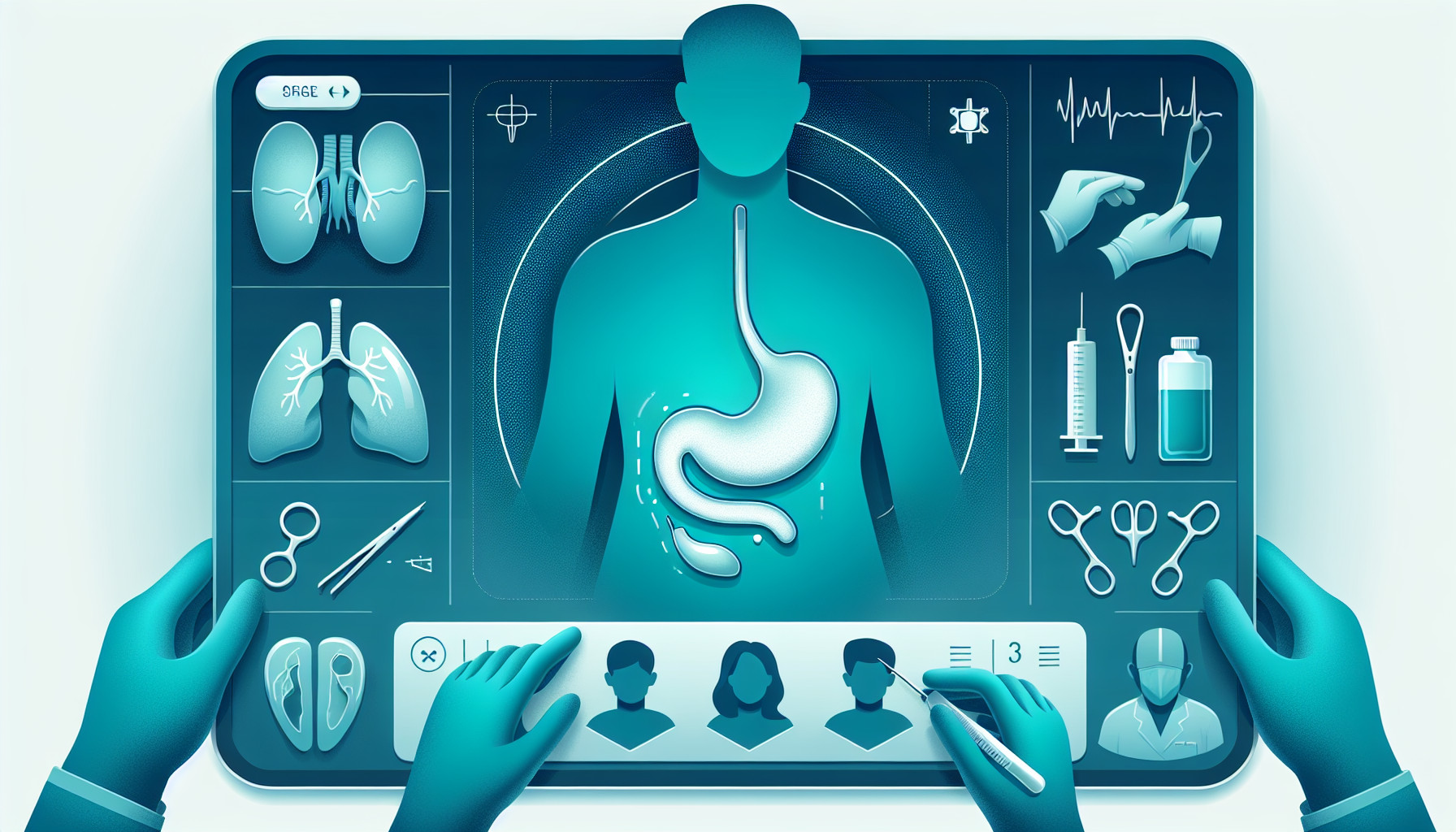Our Summary
This research paper is about a study comparing two types of gallbladder removal surgeries - Single-incision Laparoscopic Cholecystectomy (SILC) and Single-incision Robotic Cholecystectomy (SIRC). Some surgeons believe that SILC could increase the risk of injury to the bile duct or bile leakage, and SIRC might be able to prevent these risks. However, there are concerns that SIRC might take longer and cost more than SILC.
The researchers looked at studies published between 2011 and 2017 that compared these two methods. They found six relevant studies involving 633 patients. They found that both methods had similar outcomes when it came to surgery time, in-surgery complications, post-surgery complications, length of hospital stay, readmission rates, and the rate at which the surgery had to be converted to a different method.
The only significant difference between the two methods was the cost. The SIRC method was found to be significantly more expensive than the SILC method.
The researchers concluded that SIRC is a safe and feasible method for gallbladder removal and takes about the same amount of time as SILC. However, it is more expensive.
FAQs
- What are the two types of gallbladder removal surgeries compared in this study?
- What were the main differences found between Single-incision Laparoscopic Cholecystectomy (SILC) and Single-incision Robotic Cholecystectomy (SIRC)?
- Is Single-incision Robotic Cholecystectomy (SIRC) a safe and feasible method for gallbladder removal?
Doctor’s Tip
One helpful tip a doctor might tell a patient about cholecystectomy is to discuss with them the different surgical options available, including Single-incision Laparoscopic Cholecystectomy (SILC) and Single-incision Robotic Cholecystectomy (SIRC). It is important for the patient to understand the potential benefits and risks of each method, as well as the potential cost difference between the two options. This information can help the patient make an informed decision about their surgery.
Suitable For
Patients who are typically recommended cholecystectomy include those with symptomatic gallstones, gallbladder polyps, gallbladder cancer, or gallbladder inflammation (cholecystitis). Patients who experience frequent episodes of abdominal pain, nausea, vomiting, and jaundice may also be candidates for cholecystectomy. Additionally, patients with complications such as gallbladder infection, gallbladder perforation, or pancreatitis may require urgent or emergency cholecystectomy.
Timeline
Before cholecystectomy:
- Patient experiences symptoms of gallbladder disease such as abdominal pain, nausea, vomiting, and bloating.
- Patient undergoes diagnostic tests such as ultrasound or CT scan to confirm gallbladder disease.
- Patient consults with a surgeon to discuss cholecystectomy as a treatment option.
After cholecystectomy:
- Patient undergoes preoperative tests and evaluations to ensure they are fit for surgery.
- Patient undergoes either SILC or SIRC cholecystectomy procedure.
- Patient may experience postoperative pain, nausea, and fatigue.
- Patient is discharged from the hospital within a few days after surgery.
- Patient follows up with their surgeon for postoperative care and monitoring.
- Patient resumes normal activities gradually and adjusts to life without a gallbladder.
What to Ask Your Doctor
Questions a patient should ask their doctor about cholecystectomy:
- What are the different types of cholecystectomy surgeries available, including Single-incision Laparoscopic Cholecystectomy (SILC) and Single-incision Robotic Cholecystectomy (SIRC)?
- What are the potential risks and benefits of each type of cholecystectomy surgery?
- How does the cost of SILC compare to SIRC, and what factors should I consider when making a decision based on cost?
- What is the typical recovery time and expected outcome for each type of cholecystectomy surgery?
- How experienced are you in performing SILC and SIRC procedures, and what is your success rate with each method?
- Are there any specific factors about my medical history or condition that would make one type of cholecystectomy surgery more suitable for me than the other?
- What is the likelihood of needing additional surgeries or experiencing complications with each type of cholecystectomy surgery?
- Can you provide me with information about the resources available for financial assistance or insurance coverage for the surgery?
- Are there any lifestyle changes or precautions I should take before or after the surgery, regardless of the method chosen?
- Can you provide me with any additional information or resources to help me make an informed decision about which type of cholecystectomy surgery is best for me?
Reference
Authors: Sun N, Zhang JL, Zhang CS, Li XH, Shi Y. Journal: Medicine (Baltimore). 2018 Sep;97(36):e12103. doi: 10.1097/MD.0000000000012103. PMID: 30200093
